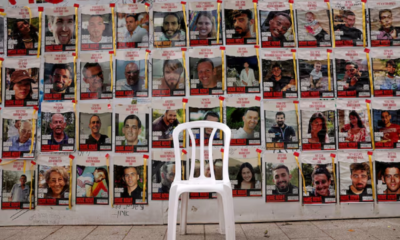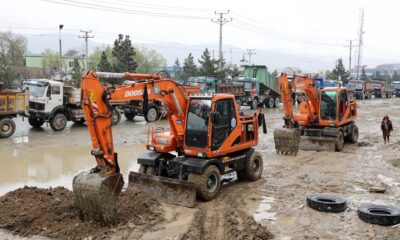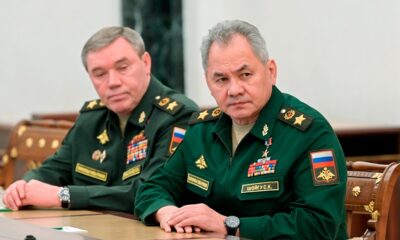World
UK to declare Russia’s Wagner a terrorist organisation
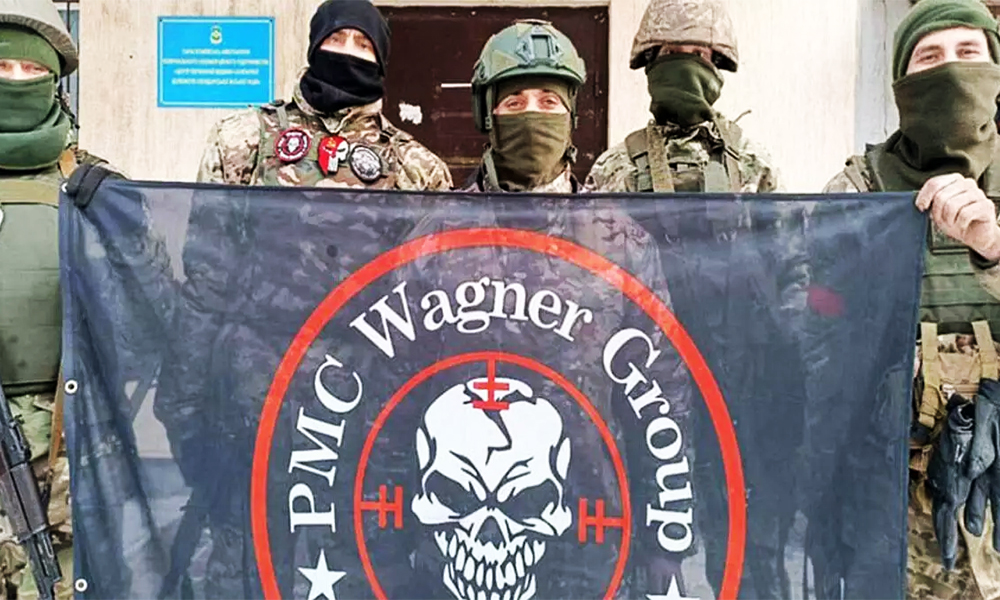
Britain is set to declare the Russian mercenary Wagner Group to be a terrorist organisation, making it illegal to be a member or to support it, the government said on Wednesday.
A draft order due to laid before parliament will allow Wagner’s assets to be categorised as terrorist property and seized, the interior ministry said in a statement.
Interior minister Suella Braverman described Wagner as “violent and destructive”. It had acted as “a military tool of Vladimir Putin’s Russia overseas,” she said.
Kremlin spokesman Dmitry Peskov said Wagner did not exist from a legal point of view, Reuters reported.
“There’s nothing to comment on,” he said when asked about the measure.
Across Ukraine, the Middle East and Africa, Wagner has been involved in looting, torture and “barbarous murders”, the British statement said, calling it a threat to global security.
“They are terrorists, plain and simple – and this proscription order makes that clear in UK law,” Braverman said.
The order is expected to come into force on Sept. 13, after which it would be a criminal offence to belong to or promote the group, arrange or address its meetings and carry its logo in public, punishable by up to 14 years in jail, read the report.
David Lammy, the opposition Labour Party’s foreign affairs spokesman, said the move was “long overdue”. The government should now press for Putin to be prosecuted for his aggression, he said.
Wagner has operated in Syria and a number of countries in northern and western Africa. It recruited thousands of convicts from Russian prisons to fight in Ukraine, providing the main assault force for Russia’s 2022-2023 winter offensive there, Reuters reported.
In June, it mounted a brief mutiny in Russia, condemned as treason by Putin, and on Aug. 23 its boss Yevgeny Prigozhin and top lieutenants were killed in a plane crash.
Britain sanctioned Prigozhin in 2020, Wagner as a whole in March 2022, and in July this year sanctioned individuals and businesses with links to the group in the Central African Republic, Mali and Sudan, read the report.
World
Hamas says it received Israel’s response to its ceasefire proposal
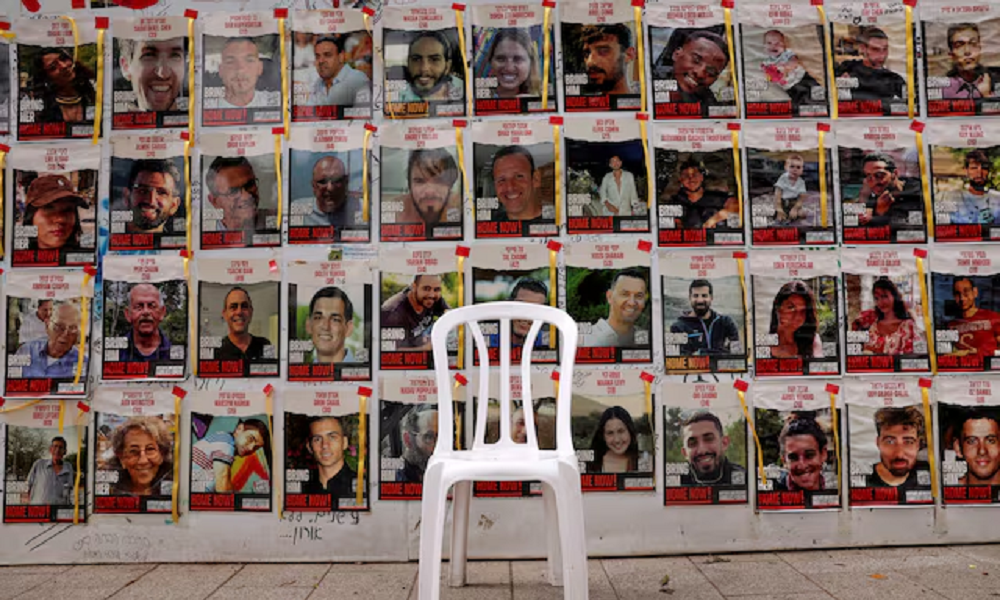
Hamas said it had received on Saturday Israel’s official response to its latest ceasefire proposal and will study it before submitting its reply, the group’s deputy Gaza chief said in a statement.
“Hamas has received today the official response of the Zionist occupation to the proposal presented to the Egyptian and the Qatari mediators on April 13,” Khalil Al-Hayya, who is currently based in Qatar, said in a statement published by the group.
After more than six months of war with Israel in Gaza, the negotiations remain deadlocked, with Hamas sticking to its demands that any agreement must end the war.
An Egyptian delegation visited Israel for discussion with Israeli officials on Friday, looking for a way to restart talks to end the conflict and return remaining hostages taken when Hamas fighters stormed into Israeli towns on Oct. 7, an official briefed on the meetings said.
The official, who spoke on condition of anonymity, said Israel had no new proposals to make, although it was willing to consider a limited truce in which 33 hostages would be released by Hamas, instead of the 40 previously under discussion.
On Thursday, the United States and 17 other countries appealed to Hamas to release all of its hostages as a pathway to end the crisis.
Hamas has vowed not to relent to international pressure but in a statement it issued on Friday it said it was “open to any ideas or proposals that take into account the needs and rights of our people”.
However, it stuck to its key demands that Israel has rejected, and criticised the joint statement issued by the U.S and others for not calling for a permanent ceasefire and the withdrawal of Israeli forces from Gaza.
White House national security adviser Jake Sullivan said on Friday he saw fresh momentum in talks to end the war and return the remaining hostages.
Citing two Israeli officials, Axios reported that Israel told the Egyptian mediators on Friday that it was ready to give hostage negotiations “one last chance” to reach a deal with Hamas before moving forward with an invasion of Rafah, the last refuge for around a million Palestinians who fled Israeli forces further north in Gaza earlier in the war.
Meanwhile, in Rafah, Palestinian health officials said an Israeli air strike on a house killed at least five people and wounded others.
Hamas fighters stormed into Israeli towns on Oct. 7, killing 1,200 people and capturing 253 hostages. Israel has sworn to annihilate Hamas in an onslaught that has killed more than 34,000 Palestinians.
World
In Beijing, Blinken meets Xi and raises US concerns about China’s support for Russia

U.S. Secretary of State Antony Blinken raised concerns on Friday about China’s support for Russia’s military, one of the many issues threatening to sour the recent improvement in relations between the world’s biggest economies.
Blinken raised the matter during five-and-a-half hours of talks with China’s top diplomat Wang Yi in Beijing, the latest high-level contact between the countries that have reduced the acrimony that pushed ties to historic lows last year.
The U.S. diplomat is due to wrap up his visit on Friday with little progress on a raft of contentious issues including U.S. complaints about cheap Chinese exports. Instead, both sides are focusing on pragmatic issues like people-to-people exchanges.
“The Secretary discussed concerns about PRC support to the Russian defense industrial base,” U.S. State Department spokesperson Matthew Miller said, adding the two sides also discussed Taiwan, the South China Sea and other flashpoints.
The PRC is short for China’s official name, the People’s Republic of China.
Despite its “no limits” partnership with Moscow, China has steered clear of providing arms for Russia’s war in Ukraine.
But U.S. officials warn its companies are helping the weapons industry with an unprecedented build up that has helped to turn the tide of the war. For example, bigger machine tool imports from China have helped Russia increase its ballistic missile production, they say.
The U.S. officials say such assistance risks hurting the broader bilateral relationship, even as ties stabilise after being hit by then-House Speaker Nancy Pelosi’s visit to Taiwan in 2022 and the U.S. downing of a suspected Chinese surveillance balloon in February 2023.
China has said it has not provided weaponry to any party, adding that it is “not a producer of or party involved in the Ukraine crisis”. However, it says that normal trade between China and Russia should not be interrupted or restricted.
STEADYING THE SHIP
In addition to his talks with Wang, Blinken met Chinese President Xi Jinping, who reiterated Beijing’s concerns that the United States was suppressing its economic development.
“This is a fundamental issue that must be addressed, just like the first button of a shirt that must be put right, in order for the China-U.S. relationship to truly stabilise, improve and move forward,” Xi said.
Earlier, Wang told Blinken that the “giant ship” of the China-U.S. ties had stabilised, “but negative factors in the relationship are still increasing and building.”
Wang also said the U.S. had taken “endless” measures to suppress China’s economy, trade, science and technology, equating such steps to containment.
“And the relationship is facing all kinds of disruptions. China’s legitimate development rights have been unreasonably suppressed and our core interests are facing challenges,” Wang told Blinken.
The agenda for the talks had been set during the November summit between Biden and Xi in San Francisco and a follow-up call in April.
Underscoring the growing discord between the two sides, hours before Blinken landed in China on Wednesday, U.S. President Joe Biden signed a bipartisan bill that included $8 billion to counter China’s military might, as well as billions in defence aid for Taiwan and $61 billion for Ukraine.
Wang said the U.S. must not step on “red lines” covering sovereignty, security and development interests – an apparent reference to Taiwan, the democratically governed island that China claims as its own, and the disputed South China Sea.
Other issues on the table include artificial intelligence and the U.S. push for progress on the curbing of China’s supply of the chemicals used to make fentanyl.
Blinken, along with senior U.S. officials focused on anti-narcotics collaboration with China, met China’s minister of public security, Wang Xiaohong, to discuss the fentanyl issue.
Ahead of Friday’s talks, U.S. Treasury Secretary Janet Yellen signalled that Biden was not taking any options off the table to respond to China’s excess industrial capacity.
Wang said that the U.S. should stop “hyping up” the “false narrative” of China’s overcapacity.
(Reuters)
World
US student protests over Gaza intensify despite arrests
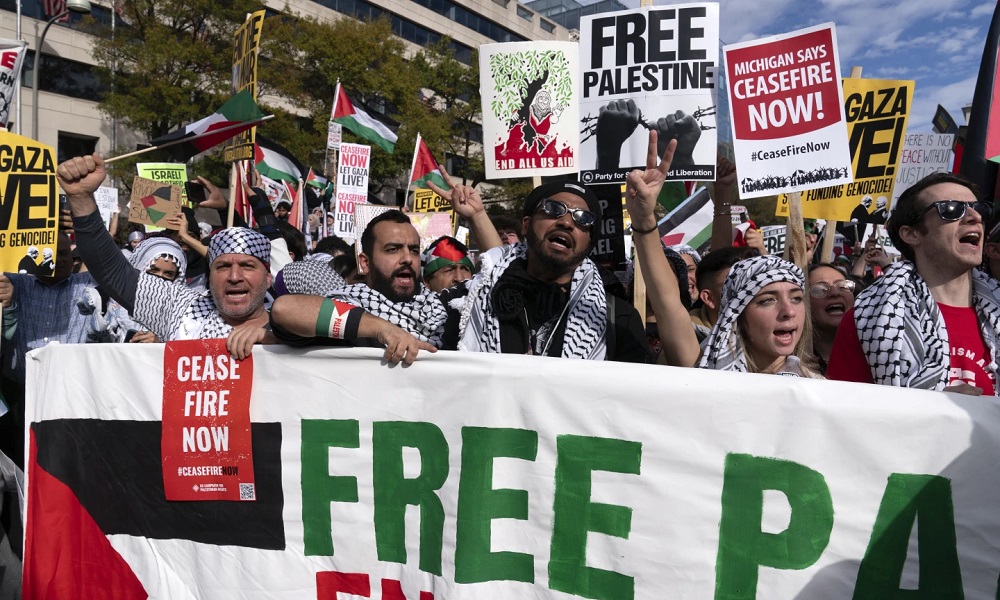
Students at a growing number of U.S. colleges continue to gather in pro-Palestinian encampments with a unified demand that Israel end its war on Gaza and that universities to divest from companies with ties to Israel.
So far, police have arrested hundreds of student protesters at numerous colleges, including the University of Southern California, University of Texas at Austin, and Columbia University in New York, among others.
The growing unrest on college campuses is also accompanied by a rise in antisemitism.
CNN reports that antisemitic acts have surged across America and particularly on campuses since October 7.
Islamophobia has also run rampant.
The recent surge in protests have in turn inflamed tensions, forcing leadership to decide when free speech on campus crosses a line and becomes threatening, CNN reports.
Several colleges have called the police on protesters, leading to the arrests of hundreds across multiple campuses.
On Wednesday, at the University of Texas at Austin, state troopers in riot gear, including some on horseback, began breaking up a group of protesters shortly after a demonstration.
The arrests on Wednesday in cities of Austin and Los Angeles came as students at Harvard University and Brown University on the east coast also defied threats of action and set up encampments in solidarity with Palestinians in Gaza.
Al Jazeera reported that protesters at Columbia University, the epicenter of demonstrations that began last week, said they won’t disperse until the school agrees to cut ties with Israeli universities and commits to divesting funds from Israel-linked entities, among other demands.
Tensions on multiple US campuses were sparked after Hamas’ October 7 attack, where militants killed about 1,200 people and took over 200 hostages. Israel retaliated on Gaza and has over the past six months killed more than 34,000 people.
When did the current conflict start?
CNN reports that the situation escalated last week at Columbia University when the university’s president, Nemat “Minouche” Shafik, testified before a House committee about the school’s response to charges of campus antisemitism. A pro-Palestinian protest kicked off on campus at the same time.
Following her testimony, Shafik requested in a letter released by the university that the New York City Police Department remove people who were encamped on the South Lawn of the campus who were “in violation of the University’s rules and policies” and trespassing.
More than 100 people were arrested.
The encampments were organized by Columbia University Apartheid Divest (CUAD), a student-led coalition of more than 100 organizations, to protest what they describe as the university’s “continued financial investment in corporations that profit from Israeli apartheid, genocide, and military occupation of Palestine.”
Since last Thursday, other college campuses have faced similar protests and encampments, as well as arrests.
Pro-Palestinian encampments have been set up at the Massachusetts Institute of Technology, Emerson College, the University of Texas at Austin, the University of Michigan and the University of California, Berkeley. On Wednesday, police arrested nearly 100 protesters at the University of Southern California after a dispersal order.
Yale University police arrested at least 45 protesters Monday while Harvard University closed Harvard Yard and officials at the school suspended a pro-Palestinian student organization for allegedly violating school policies, CNN reported.
-

 Latest News4 days ago
Latest News4 days agoRashid Khan named AWCC’s brand ambassador
-

 World5 days ago
World5 days agoMalaysian navy helicopters collide in mid-air, 10 killed
-

 Sport4 days ago
Sport4 days agoJaiswal ton powers Rajasthan to big IPL win
-

 World4 days ago
World4 days agoNorth Korea officials visit Iran in a rare public trip
-

 Latest News5 days ago
Latest News5 days agoAt least 1,500 families affected by recent floods: IRW
-

 Sport5 days ago
Sport5 days agoMawj Sahil player scores stunning halfway line goal in 1-0 win over Jawanan Wahedi
-

 Sport3 days ago
Sport3 days ago‘Serious talent’ Fraser-McGurk bonds with Warner to light up IPL
-

 Latest News4 days ago
Latest News4 days agoUS report cites ‘significant deterioration’ in Afghan women’s rights last year




